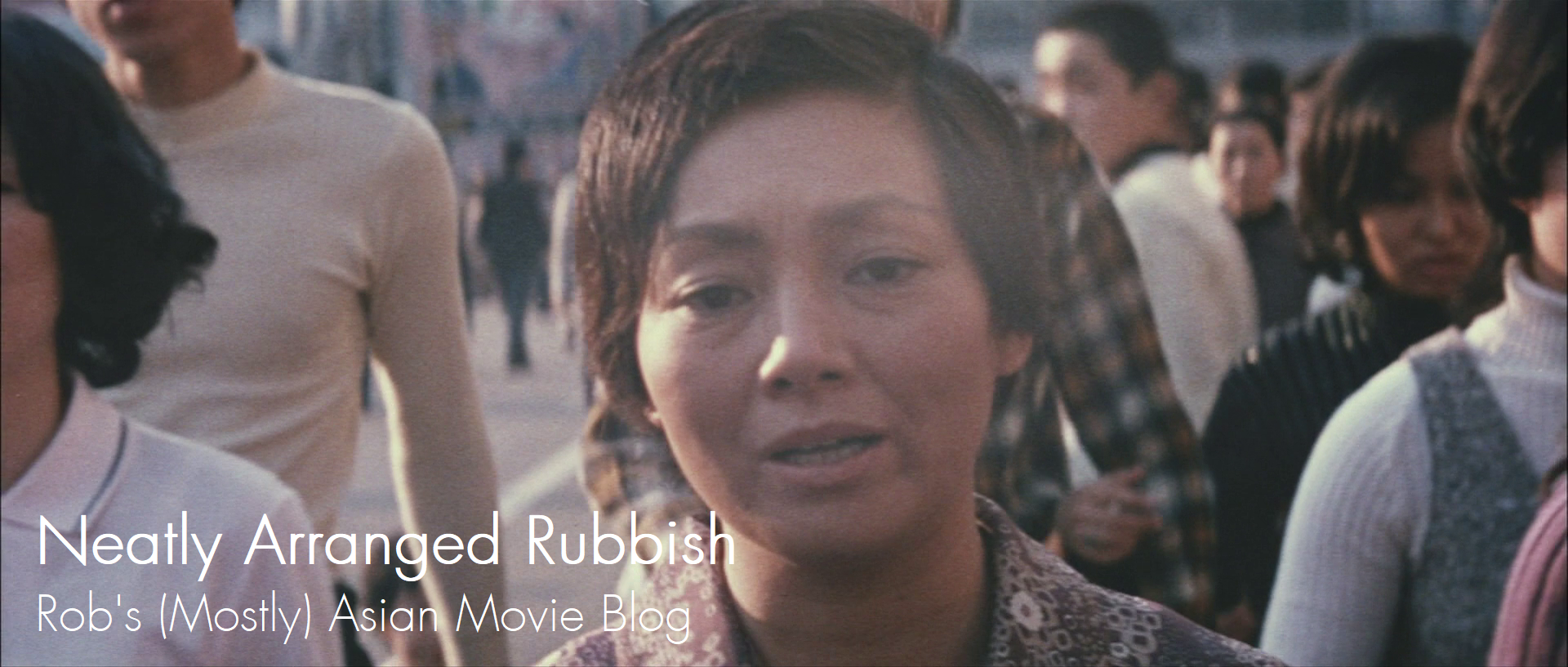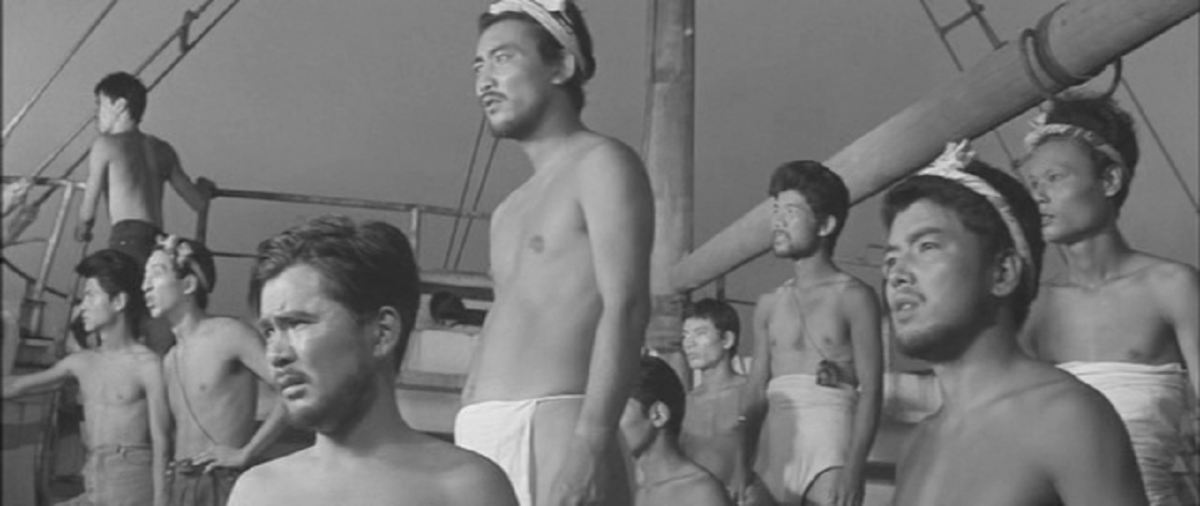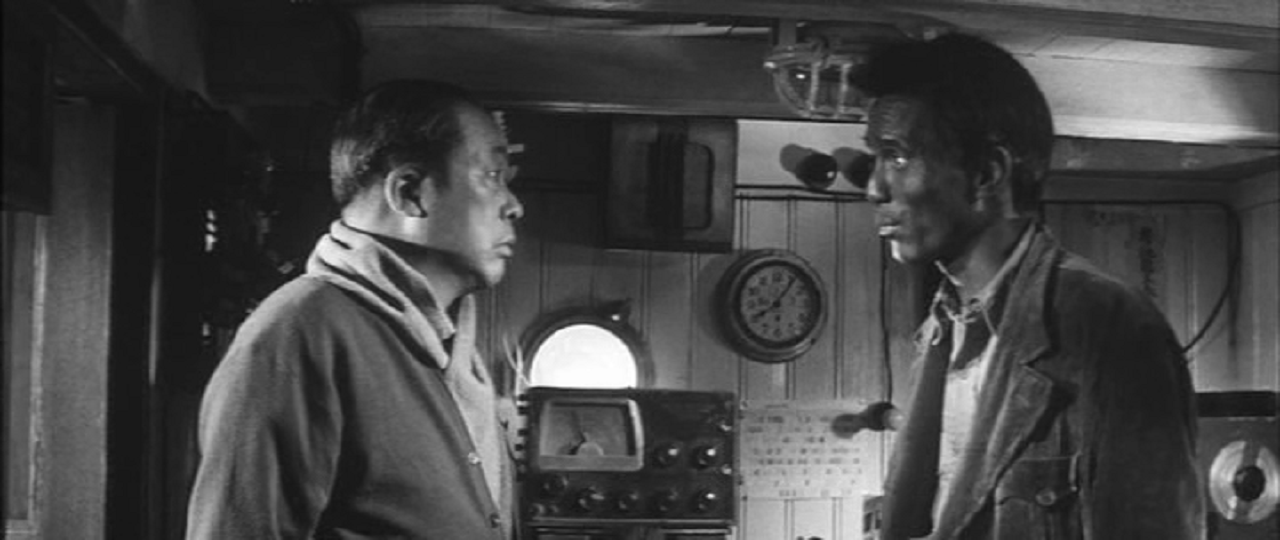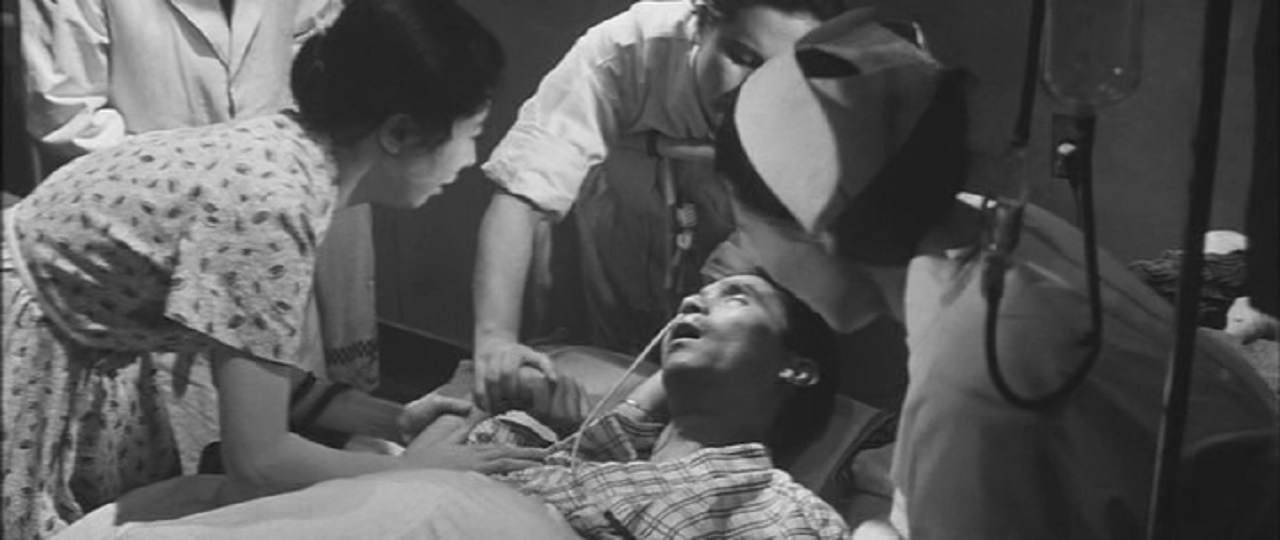Last Updated on September 30, 2020 by rob
The crew of the fishing boat Lucky Dragon venture far outside their usual waters in search of a bigger catch. Near Bikini Atoll a bright flash of light on the horizon turns the night into day and is followed by a strange cloud of ash which covers the ship and its crew. Returning home, the dreadful truth slowly emerges and as the crew is taken into care and an American delegation arrives in Japan the reluctance of the latter to divulge any details fuels Japanese suspicion and paranoia.
A fine anti-war movie based on a grim true life event in which the crew of a fishing boat were drenched in radioactive fallout following a hydrogen bomb test by the US military. Shindo’s film follows the fate of the Lucky Dragon’s crew and in particular its radio operator Kuboyama (Jukichi Uno) as their sunburnt appearance sparks at first bemusement from the locals and then panic once their story is picked up by a local reporter and the full weight of government and military intervention swings into action. The film has its share of vividly rendered moments. A press pack visiting the heavily irradiated Lucky Dragon and then scattering in panic after a geiger counter pointed at the boat practically explodes evokes real dread.
The spectre of radiation poisoning – at that time little understood but greatly feared – manifests itself in a series of tasty vignettes; the town whores in a panic after the realisation they’ve slept with the poisoned men, a local man hysterical having realised the fish he ate came from the Lucky Dragon’s irradiated cargo. And in the early stages of the film there’s some splendid documentary style footage of the workaday business of the crew as they haul aboard sharks before bashing them over the head with a mallet or bloodily eviscerating them as they thrash wildly on the deck.
That said, this isn’t in the first rank of Shindo’s work principally because once the situation is established character involvement takes a backseat to the broader political context of the accident – examining the way America’s reluctance to admit exactly what it was they were testing simply fuels Japanese suspicions their own countrymen are being used as guinea pigs and the fear of the Lucky Dragon’s crew that if they talk publicly about the incident they’ll be prosecuted as Communist spies. Such elements certainly make for a convincing snapshot of a moment in time but Shindo can’t quite give enough weight to the personal drama of Jukichi Uno’s skipper slowly dying in hospital as his family (wife played by Nobuko Otawa) look on helplessly.
In fact the most powerful moment in the film comes right at the end when Kuboyama’s widow and her three children take the train home – their father having just died – and each occupant of the packed carriage rises in silence, walks up to the grieving family and bows to them before returning to their seat. It’s an incredibly cathartic moment emphasising the nation’s sympathy for the Lucky Dragon’s crew. The subsequent real life footage of senior figures from both Japanese and US Govt’s attending Kuboyama’s funeral and the closing shots of flocks of pigeons released from around the country as a peace symbol do feel sincerely earned.



